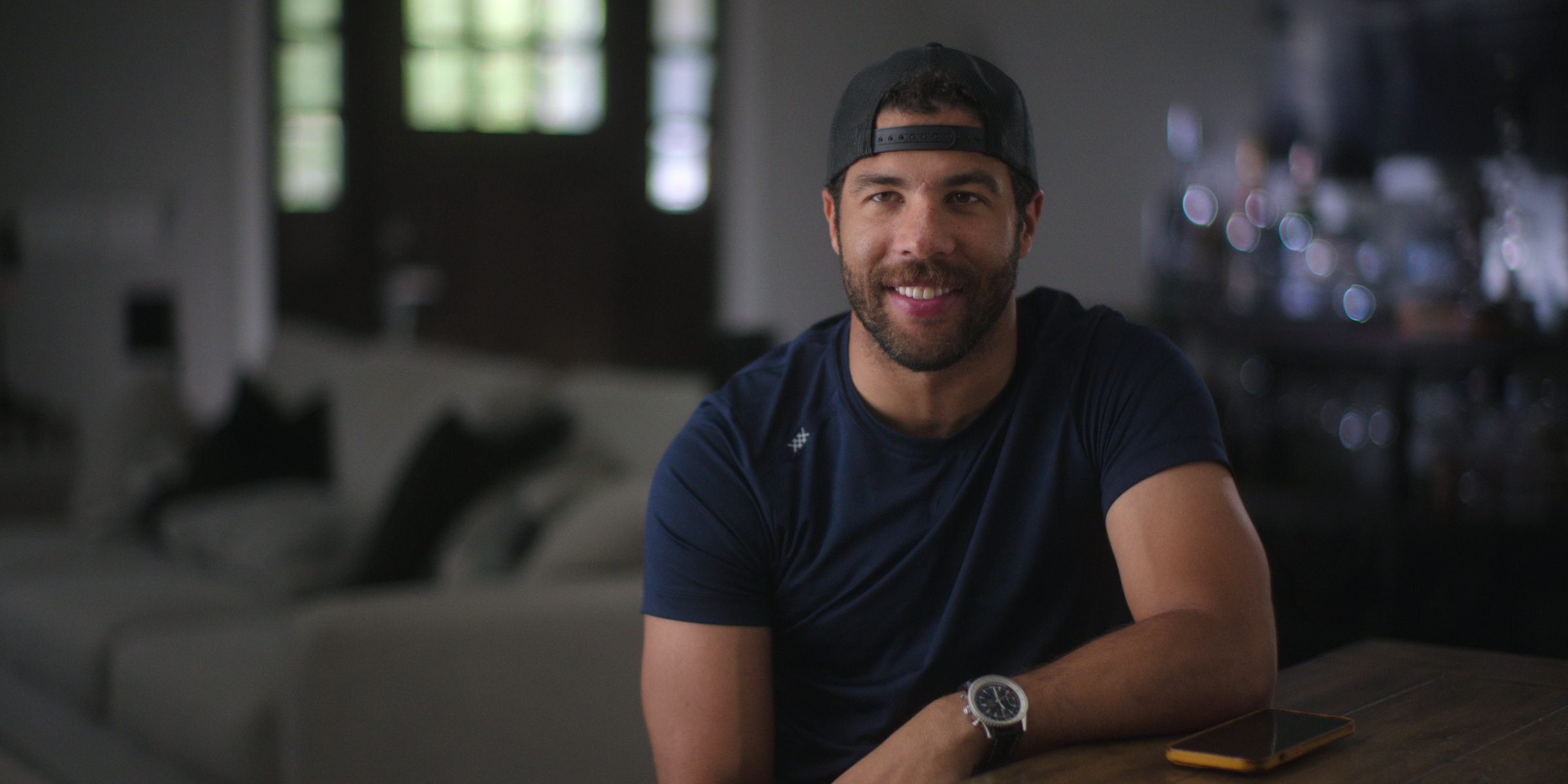A game-changer, by definition, is "a newly introduced element or factor that changes an existing situation or activity in a significant way." As the only full-time Black driver in NASCAR's Cup series, Bubba Wallace exemplifies the true meaning of game-changer both on and off the racetrack. During the height of social uprisings occurring throughout the country back in May 2020, after the murder of George Floyd by police officers in Minneapolis, he utilized his platform to take a stand and speak out against racial injustice.
Bubba also called for NASCAR's removal of the Confederate flag during races and continues to push for inclusion and equality within the traditionally white sport. In Netflix's upcoming docuseries, RACE, director Erik Parker and Bubba Wallace peel back the layers to showcase an in-depth look at the 28-year-old's ongoing journey to finding himself as both a driver and an activist serving as a voice for the Black Lives Matter movement. While also confronting his mental health issues.
Both Wallace and Parker spoke with 21Ninety about the aftermath of challenging racial injustice, finding the courage to ignite the conversation and receive help for anxiety and depression, and the motivation behind bringing this series to the screen.
Dontaira Terrell: Bubba, you openly speak about the stigma surrounding Black masculinity and mental health in the docuseries. How did you move past this outdated role and find the courage to receive help and the necessary care for your depression and anxiety?
Bubba Wallace: I think I just woke up and said, 'I guess today's the day to talk about things.' I never really knew that there was a stigma about mental health in general, especially Black mental health. After speaking out on such topics, I've received a better understanding of how tough it is for some people and how big of a weakness it may seem to others because they're labeled. I said earlier that being vulnerable is one of the greatest signs of strength. It's just something that you have to be confident in, knowing that you're making a good change when you are, expressing yourself.
DT: Many layers were peeled back behind the evolution of who Bubba Wallace is outside of being an athlete. With revealing so much, why was now the right time to tell the in-depth personal story of Bubba Wallace?
Erik Parker: I think it was because we were at a point in history where we wanted to capture it in real-time. It was important for us to get that on record and everything that Bubba [Wallace] has done to speak out and give people some insight into the sport and what's happening outside of everyone else's comfort zone. So there was a time and space. We had this social uprising in America, and Bubba [Wallace] was a person who rose to meet that challenge and to help make a change in the sport. We wanted to show that in the time that it actually happened, and we tried to get closer to that time as possible.
DT: Speaking to that Bubba, how do you continue to find inspiration in the fight for social justice when injustice never sleeps?
BW: That's a good question. People always ask, 'What's next, and will this ever get to a point where you won't have to continue to push for it?'
No, I don't think so because it's a never-ending battle, and we're always going to come upon roadblocks and figure out how to navigate it and the best way to go about it. That's life. You never know what to expect in life. For me, you just show up continue to be a good human being in everything that I do on and off the racetrack. As long as we continue to stand up for what's right and be inclusive in every way possible, no one should ever feel excluded from something because of how they look, how they dress, or whatever it may be. Any of that stuff doesn't have a place here anymore. I'm just going to continue to preach that and stand behind it.
DT: This is my last question for both of you, how do you define your own measure of success?
BW: That's tough to me; it's all about winning on the race. But I have a great group of people around me that will humbly remind me of everything that I'm doing off the racetrack and allow me to see the changes being made. I do think it's great everything we're doing. I don't like to sit here and boast about myself because I think it's a lot more than just me making these changes in NASCAR, and many people see me as the key leader of that. And I'm just like, 'Yeah, I guess.' But many good things are happening in our sport, but we have to keep going.
EP: I'll speak to success in this series. I think the series is, is a success. If we can reach an audience and get them to see things differently to get them to try to understand what Bubba Wallace was going through and possibly see themselves in his struggle, then I think we'll have made a successful series.
